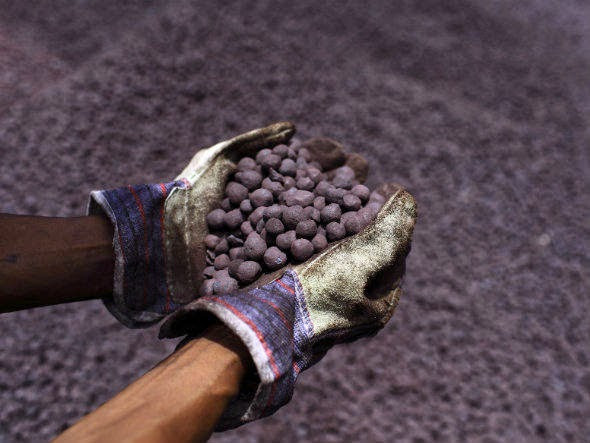Even if the iron ore got caught up in the US-China trade issues, among other things, its supply is recovering, China's import is still holding up and its recent price of a five-year high is going down.
Iron ores are rocks and minerals where metallic iron, a steel-making ingredient, gets extracted.
China's iron ore is expensive to process. The cost of foreign iron ore is cheaper, thus, China imports.
Iron ore's price is at 32.2% above the level it had on Jan. 24 the day before, a tailings dam of the Brazilian mining giant Vale in Brumadinho collapsed and killed nearly 300 people.
The tragedy shut down some of Vale's operations as safety checks were conducted. Because Brazil is the second-biggest exporter of this steel-making ingredient, this drastically lessened iron ore shipments.
After China's yuan became seven to the US dollar, its weakest in 10 years, iron ores fell by the 6% exchange limit during Monday's trade on the Dalian Commodity Exchange (DCE).
However, with China, the world's biggest buyer, importing from this South American nation in March, June, and July, it helped Brazil's exports to recover.
According to Refinitiv, China doubled its Brazilian July import of iron ore to 17.7 million tons compared to the 7.7 million in June. China's biggest import was in March at 18.2 million.
China's iron ore imports in April to June got affected not only by the slashed shipment from Brazil but also of a tropical cycle in March that affected mines and ports of the world's top iron ore exporter, northwestern Australia.
There are signs that China will continue importing til August as supplies rose with the mining company Vale getting authorized in June to restart operations in its Brucutu mine, capable of delivering 30 million tons of iron ore a year.
Supply is returning to normal as confirmed by vessel-tracking numbers.
The high price of iron ore is going to go down.
However, the trade issues of the top two economies pose a risk of iron ore exports.
On Aug. 3, iron ore was its peak of $125.20 a ton. Now, it dropped by 20.3%. Benchmark Shanghai steel rebar futures have, since July 1's peak of 4,108 yuan a ton, declined by only 8 %.
Chinese steel mill margins are improving with the depreciation of the yuan not being large enough to offset the weaker iron ore price.
It may mean a little bit of good news to the iron ore industry, but probably not enough to prevent prices from slipping back close to the recent $75 a ton just before the Vale dam disaster.






